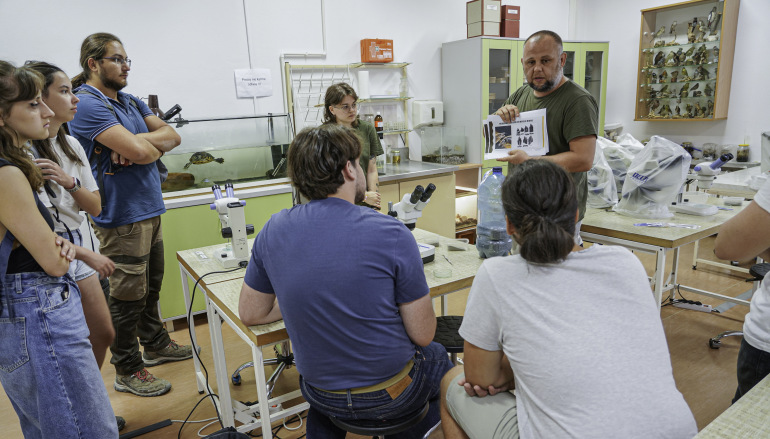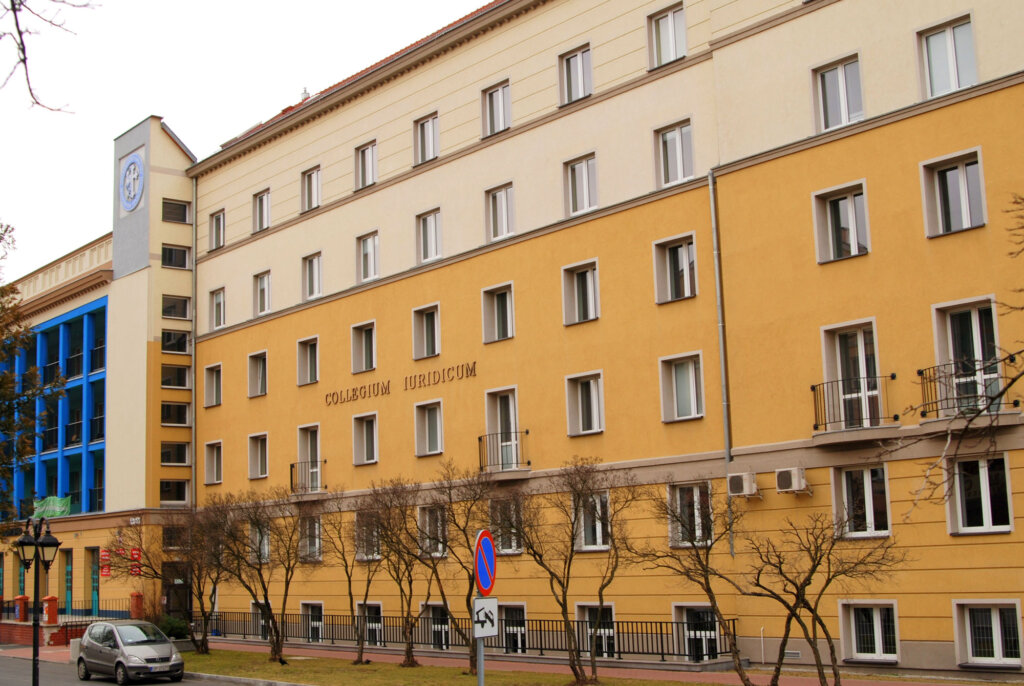
For five days students from Poland, France and the Czech Republic visited excavation sites in Krasiejów, the Odra and Folwark quarries, took part in workshops and lectures, and went on a city walk. They participated in the Blended Intensive Programme week, which took place from 2 to 6 September 2024.
Under the Erasmus+ Programme, the University of Opole hosted students from the Czech Republic, France and Poland. The aim of the visit was to analyse the Mesozoic fauna and flora from the Opole region, providing the students with an opportunity to develop their practical and theoretical competences in palaeontology and palaeobiology.
“On the first day, we conducted excavations in Krasiejów, and on the second and third days we went to the Odra and Folwark quarries. The fourth day the students spent in the laboratory, where they participated in palaeontology workshops and had a chance to work on determining microfossils’ said Dr Elżbieta Teschner from the UO Institute of Biology. ”It’s a nice group of young people who are open to posts they don’t have at home. They all show great enthusiasm.”
During their visit to the Krasiejów Jurapark, the students visited the time tunnel and the pavilion of the University of Opole, where they participated in a palaeontology workshop. They also visited the local oceanarium. In the quarries, they drew profiles and collected samples which they later analysed in the laboratory of the Collegium Biologicum of the UO.
“At the moment, this type of project is probably the only one in Europe. Of course, researchers take up palaeontological issues, but very few deal with microfossils,” stressed Jakub Kowalski from the UO Institute of Biology. “This is the first such project that I am conducting here. I think its participants will leave this place enriched with new knowledge and hopefully when they return to their universities, they will also start to study their own sediments using similar techniques?”
On the last day, the participants of the Blended Intensive Programme attended a lecture, after which they went for a walk around the university campus and the city centre. The visit was co-organised by the UO International Mobility Team and the Institute of Biology.

Blended Intensive Programme was organised within the Erasmus+ Programme, Project No. 2023-1-PL01-KA131-HED-000123139.


Instytut Biologii
ul. Oleska 22,
45-052 Opole
University of Opole
Kopernika 11a
45-040 Opole, Poland
Rector’s Office
tel.: +48 77 541 59 03
Chancellor’s Office
tel.: +48 77 541 60 70
NIP: PL7540007179
REGON: 000001382
carefully created by Uniwersytet Opolski